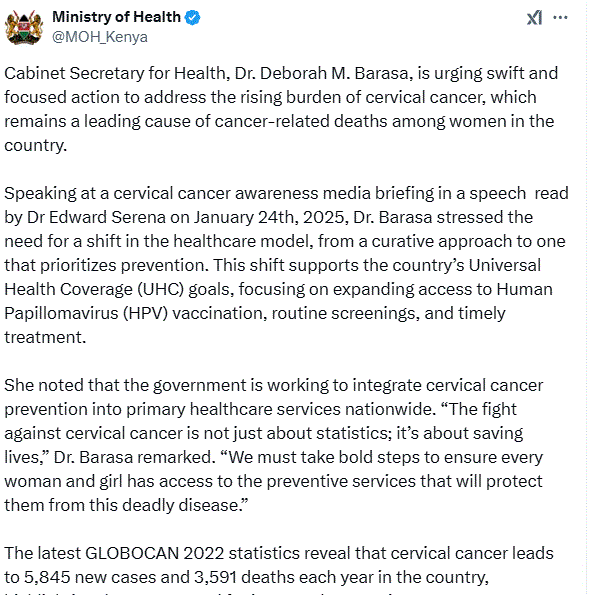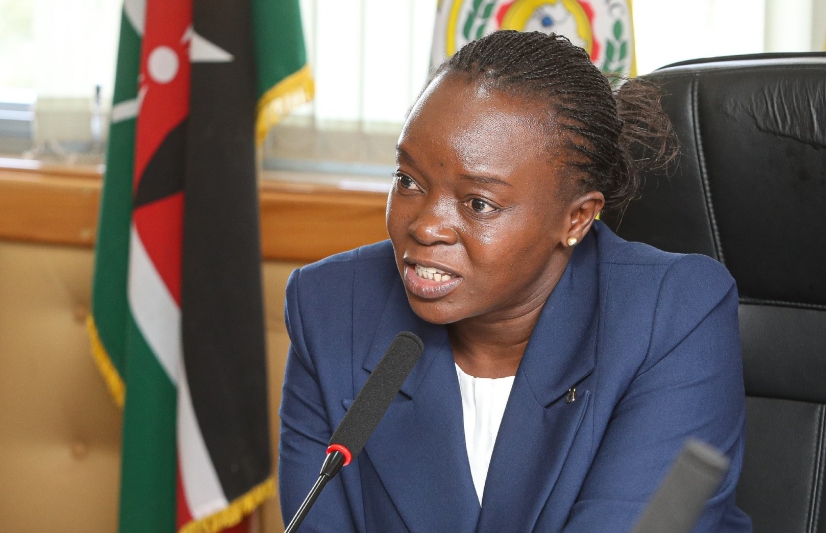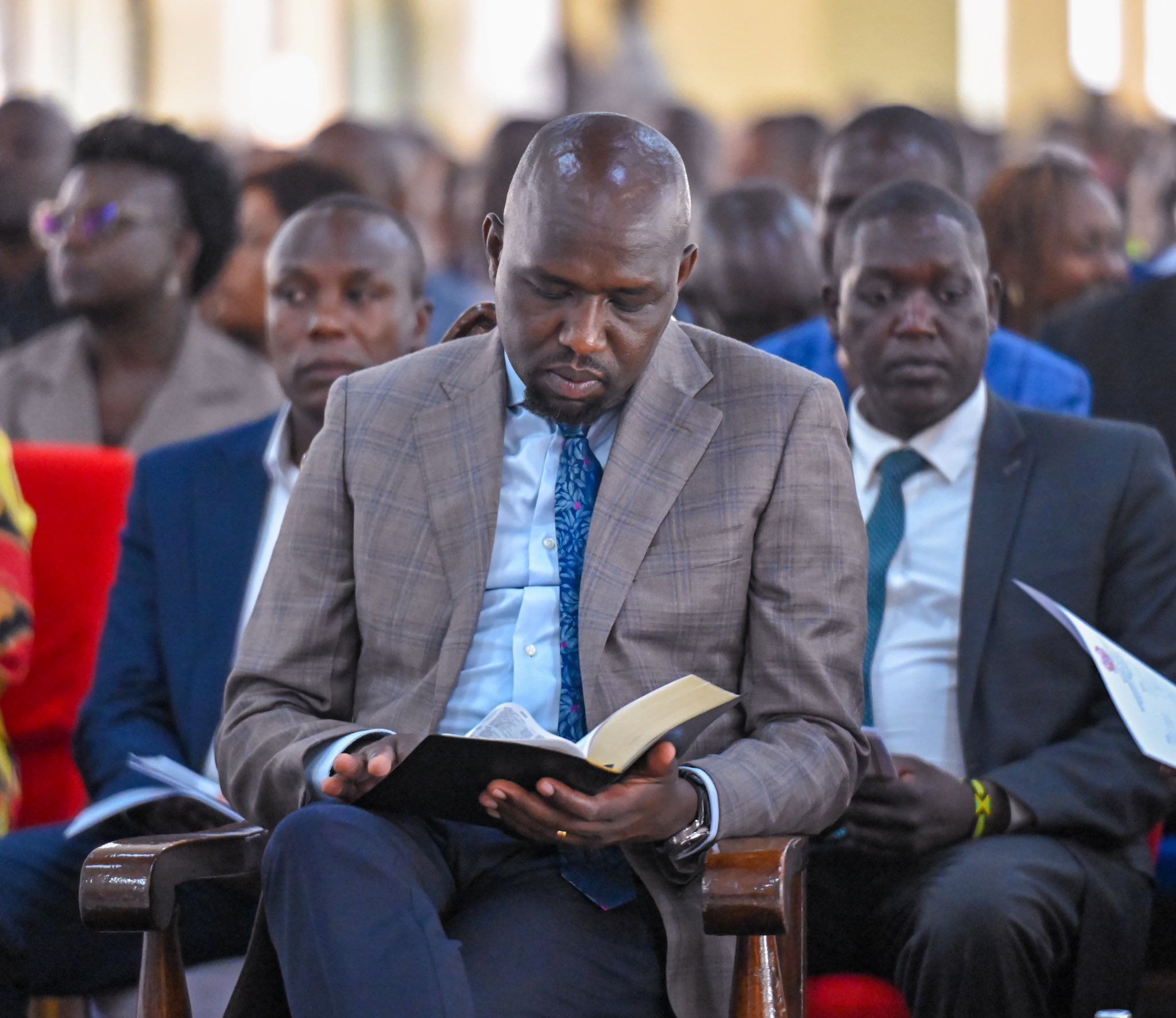The government through the Ministry of Health has announced that the country records 3,591 cervical cancer-related deaths and 5,845 new cases annually.
Cabinet Secretary for the Ministry of Health Deborah Barasa while urging swift and focused action to address the rising burden disclosed that cervical cancer remains the leading cause of cancer-related deaths among women in the country.
In a speech read by Dr Edward Serem on Friday, January 24, 2025, during a cervical cancer awareness media briefing in Nairobi, Barasa pointed out the importance of a shift in the healthcare model that focuses on expanding access to Human Papillomavirus (HPV) vaccination, routine screenings, and timely treatment.
The CS noted that easy access to preventive services will protect women and girls from cervical cancer.
In addition, Barasa stated that the government is working to integrate cervical cancer prevention into primary healthcare services nationwide.
“The fight against cervical cancer is not just about statistics; it’s about saving lives. We must take bold steps to ensure every woman and girl has access to the preventive services that will protect them from this deadly disease,” she stated.


Ministry of Health disclosed that the latest GLOBOCAN 2022 shows that cervical cancer leads to 5,845 new cases and 3,591 deaths each year in the country.
“The latest GLOBOCAN 2022 statistics reveal that cervical cancer leads to 5,845 new cases and 3,591 deaths each year in the country, highlighting the urgent need for improved preventive care,” the Ministry of Health said in a statement on X.
HPV Vaccine
Focusing on prevention, the CS pointed out the importance of HPV vaccination for girls below the age of 15 adding that the vaccine has proven to reduce the contraction of cervical cancer.
She further called for a united effort from the government, healthcare providers, media, and the public to turn awareness into tangible actions that can save lives adding that the elimination of cervical cancer is achievable.
Kenya introduced the HPV vaccination program into the routine immunisation schedule in 2019 targeting girls aged ten to fourteen.
In March 2024, the country announced its plans to adopt a single dose of the vaccine that prevents cervical cancer, according to the World Health Organisation directives from the initial two jabs six months apart.


Cabinet Secretary for Health, Dr. Deborah M. Barasa, is urging swift and focused action to address the rising burden of cervical cancer, which remains a leading cause of cancer-related deaths among women in the country.
— Ministry of Health (@MOH_Kenya) January 24, 2025
Speaking at a cervical cancer awareness media briefing in a… pic.twitter.com/3jE2sfnDcV









